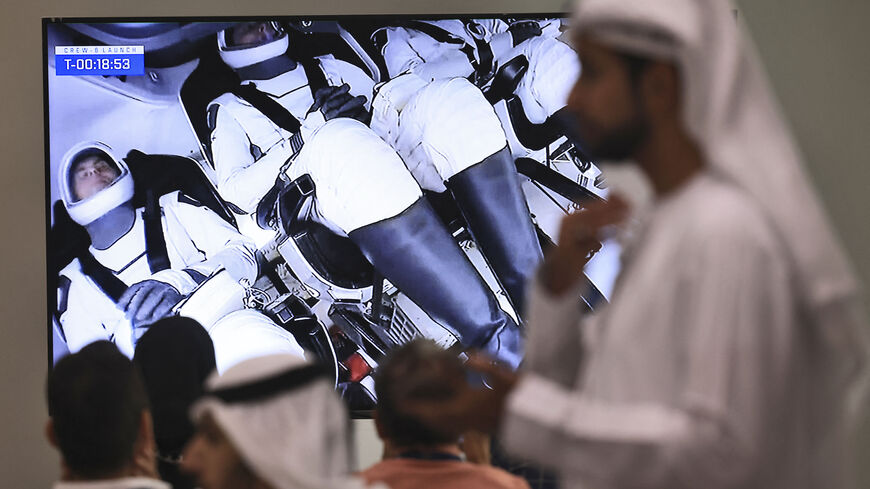The United Arab Emirates successfully sent its second astronaut ever into space on Thursday with a rocket launch from the SU National Aeronautics and Space Administration (NASA)'s Kennedy Space Center in Merritt Island, Florida.
UAE military engineer Sultan Saif Al-Neyadi and three other international crew members are currently in orbit following the midnight launch of the spacecraft NASA has named Endeavor and Dubai’s Mohammed Bin Rashid Space Center (MBRSC) calls Zayed Ambition 2.
Hazaa Al Mansoori became the first Emirati and Arab to reach the International Space Station (ISS) in September 2019. Saudi Arabia's Prince Sultan ibn Salman Al Saud became the first Arab, Muslim and member of a royal family to travel to space in 1985.
This is a truly historic moment for the UAE and the Middle East.
— Dan Murphy (@dan_murphy) March 2, 2023
Sultan Al Neyadi has made history as the second astronaut from the UAE to travel to space. @_HadleyGamble @uaespaceagency pic.twitter.com/aS2xpAne97
This 2023 mission is expected to take the Emirati astronaut to the ISS for about six months, making it the longest Arab space mission in history, according to MBRSC.
The other crew members include NS retired US Navy Captain Stephen G. Bowen, American commercial pilot engineer Warren “Woody” Hoburg and Russia’s Roscosmos cosmonaut Andrey Fedyaev, NASA said, adding that Al-Neyadi is the first UAE astronaut to fly on a commercial spacecraft.
The four astronauts are expected to dock at the space station on March 3 and join members on a previous mission, Expedition 68. The 11 crew members will work together until four head back to Earth a few days later.
Al-Neyadi will collaborate with NASA and other international space agencies to conduct 19 scientific studies across a wide array of topics including cardiovascular and immune system health, back pain, plant biology, sleep analysis and radiation, according to the UAE’s government news agency WAM.
The mission will incorporate two research projects from MBRSC. The first project in coordination with the science mission will assess how the microgravity environment of space flight affects cardio-postural interactions, while the second will investigate dental and oral cells in a simulated microgravity environment on Earth, reported WAM.
The secondary goal is to involve educational outreach efforts in this research by engaging young Emirati students and researchers to become the country’s future generation of scientists.
The UAE has placed the space industry among its top priorities for the next 50 years as part of its Projects of the 50.
The country has spent about $6 billion on space-related activities between 2015 and 2020, and contractual agreements for space services increased by 40% in 2020, according to the UAE Space Agency.
Saudi Arabia is looking to follow the UAE's lead with its space endeavors and announced that it will be sending its first female astronaut, Rayyanah Barnawi, to space this year along with fellow Saudi Ali Al-Qarni for a 10-day mission to the ISS, according to the country's government news agency.


.jpg?h=484aaada&itok=l9O0K7bm)





